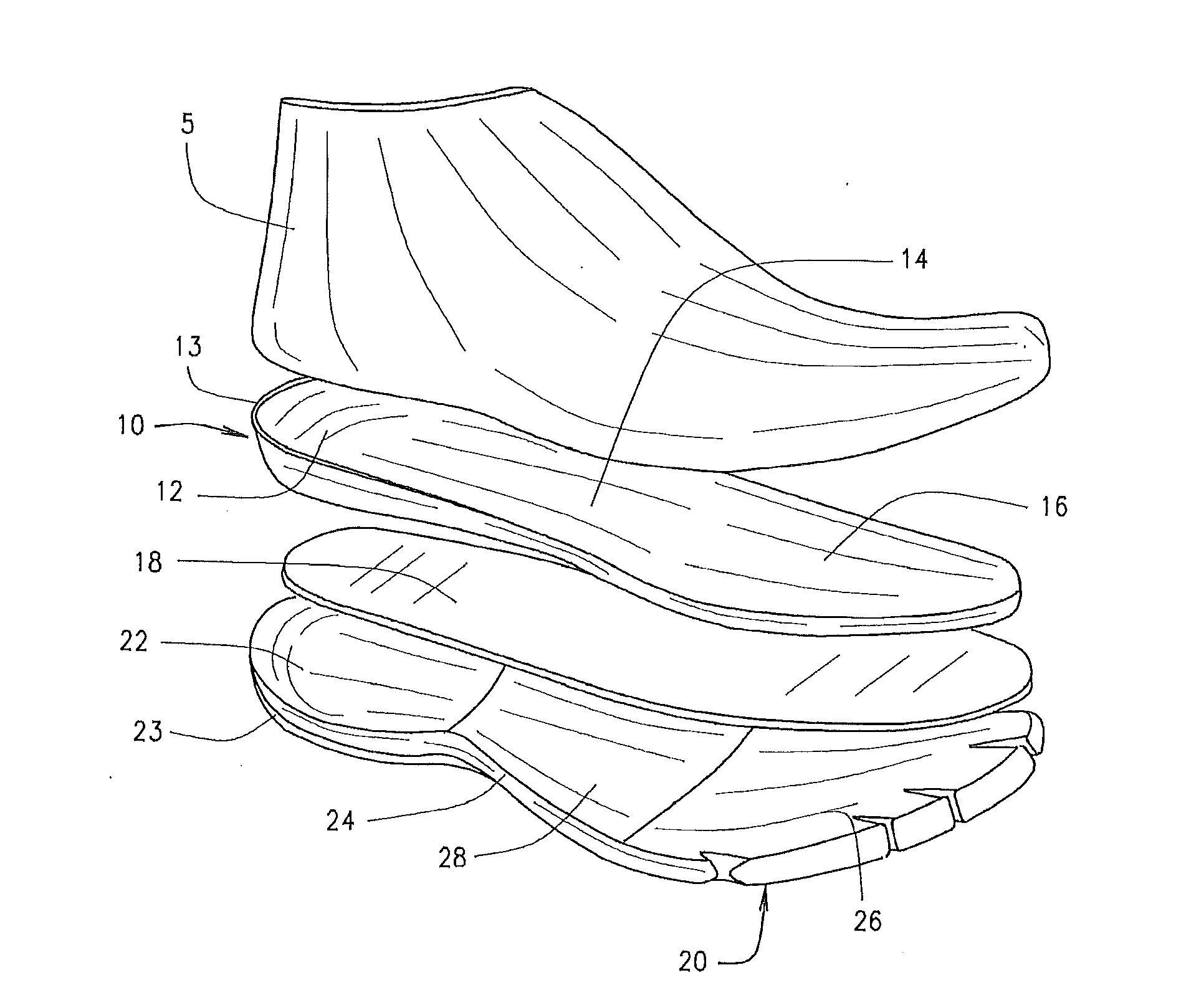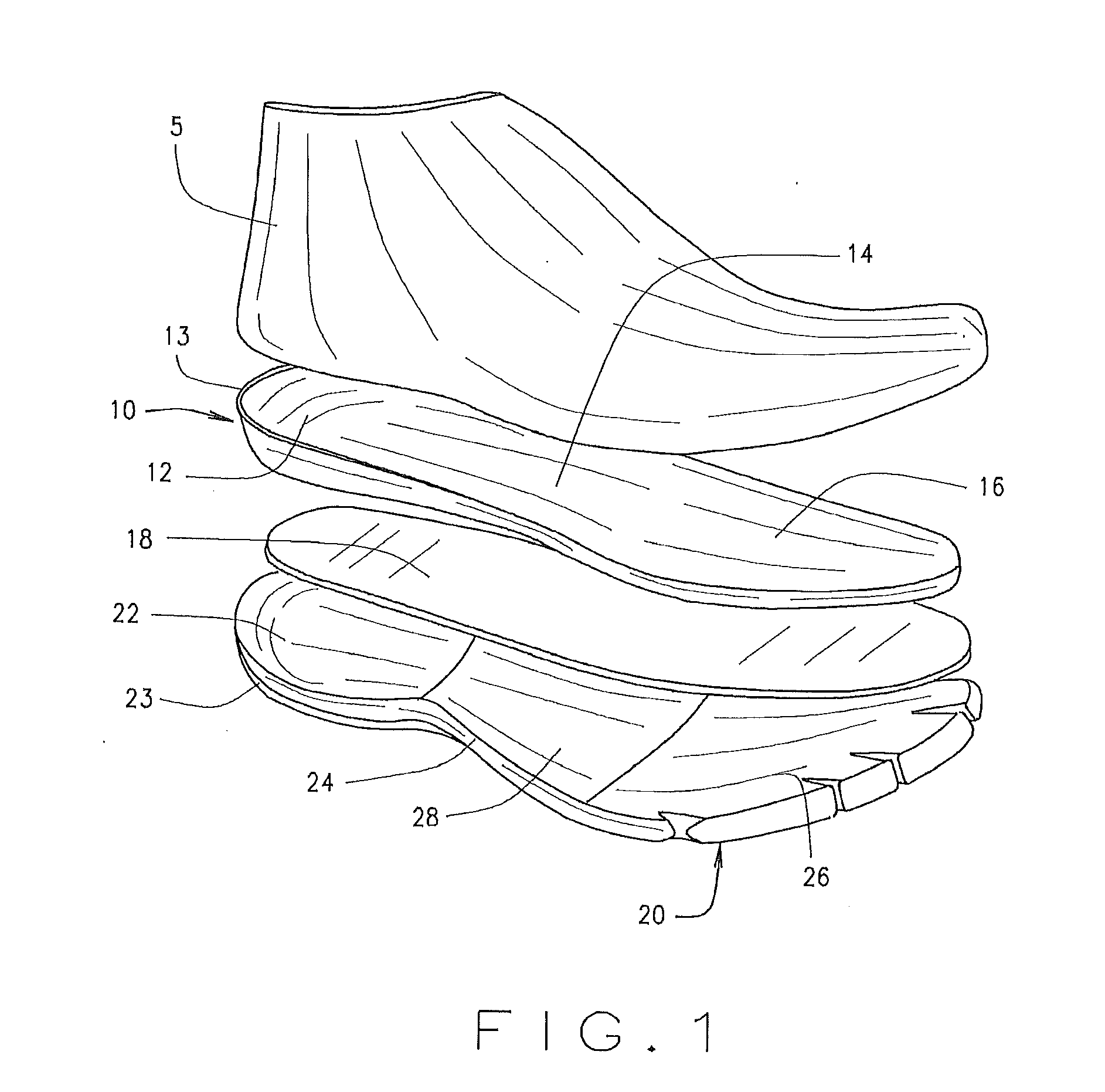Footwear promoting natural motion
a natural motion and foot technology, applied in the field of footwear, can solve the problems of increasing the impact force and potential discomfort experienced by the wearer, limiting the end use and wearing occasions, and similar approaches without improving the benefits delivered, so as to reduce the restriction of movement, reduce the impact force and potential discomfort, and reduce the effect of torsional stiffness
- Summary
- Abstract
- Description
- Claims
- Application Information
AI Technical Summary
Benefits of technology
Problems solved by technology
Method used
Image
Examples
Embodiment Construction
[0014]In the present invention, shoe construction is provided which improves comfort during running. As shown in FIG. 1, a shoe will include a last or “upper”5, sock liner 10, strobel sock insole 18 and outsole 20. Outsole 20 is positioned on the underside of the shoe for engagement with a walking surface such as the ground, sidewalk, floor or other supporting surface. Preferably, the top surface of the outsole is shaped to conform to the bottom surface of the sock liner 10 and / or strobel sock insole 18. The sock liner 10, strobel sock insole 18 and outsole 20 may be secured to one another using any suitable attachment means including cement, adhesives, glue, welt and direct attachment constructions
[0015]For ease of reference herein, the foot of a human may be considered to have three regions: the forefoot region (area adjacent the toes), the midfoot region (area adjacent the arch), and the hind foot region (area adjacent the heel). As shown in FIG. 1 the sock liner 10 and outsole 2...
PUM
 Login to View More
Login to View More Abstract
Description
Claims
Application Information
 Login to View More
Login to View More - R&D
- Intellectual Property
- Life Sciences
- Materials
- Tech Scout
- Unparalleled Data Quality
- Higher Quality Content
- 60% Fewer Hallucinations
Browse by: Latest US Patents, China's latest patents, Technical Efficacy Thesaurus, Application Domain, Technology Topic, Popular Technical Reports.
© 2025 PatSnap. All rights reserved.Legal|Privacy policy|Modern Slavery Act Transparency Statement|Sitemap|About US| Contact US: help@patsnap.com


